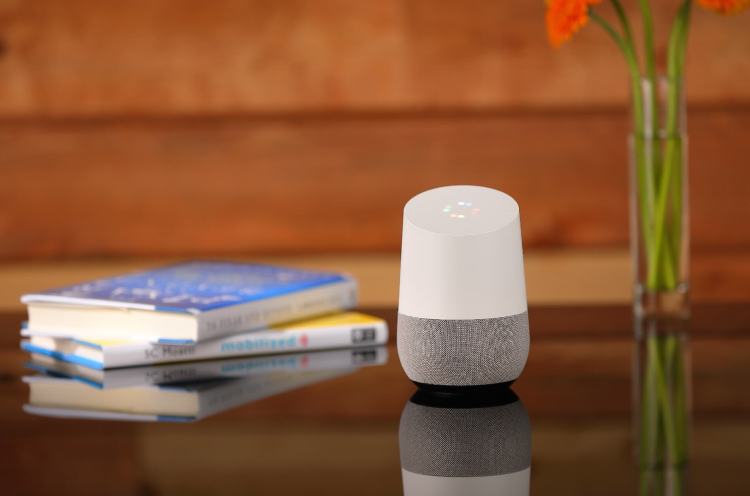You are the master of your own domain.
With the Google Home speaker, released on November 4, there’s even some proof. You can speak to Google and issue commands. Turn off the lights. Play a YouTube video. Add milk to your shopping list so your spouse doesn’t think you’re slacking off again.
While the Amazon Echo is a remarkably similar product, Google Home is a standout for many reasons. The Assistant is always listening and can check your Google calendar for you. If you add an item to your grocery list, the Assistant will make a new note in the Google Keep app, no problem. Because there is such a treasure trove of data from parsing searches for users on the web over the past few decades, the Assistant tends to chime in with actual answers to questions — like how far is it to the moon or what is the national debt of the United States.
If you already use Google Music, there’s another perk: Google knows you. I asked the Home speaker to play the song I listen to the most on Google Music (one by The National, obviously). When I randomly asked the Assistant to play any cool song, it picked one by a band called Chase & Status. In other words, it mined my music archive and found a band I would like based on previous listening choices.
I’m impressed by the sound quality of the speaker, too. It has a rich, deep bass — surprising for a speaker the size of a table-top air freshener. I played bands like Iceage (which I’ve used to test many portable speakers over the years), and Home passed with flying colors (literally, when you say OK, Google and the Google colors rotate on the top). For $129, compared to the Echo priced at $180, you might even call Google Home a steal. I highly recommend it for everything, except…
There’s one glaring issue. In terms of full voice control using artificial intelligence and natural language processing, the Google Home has a ways to go. I tested it with Philips Hue and, while it’s definitely cool to tell the Assistant to turn the lights off, the AI sort of ends there. Maybe there’s a way to make this work, but no matter what I said to the speaker it wouldn’t adjust the brightness, switch to another color, or even use one of the stock settings (like Daylight).
With a Google Chromecast, the voice control was also a bit confounding. I asked the Assistant to play the movie The Shallows, which is stored right in my Google Play library, and it told me it doesn’t support video playback. When I asked it to play any song by The Boxer Rebellion on YouTube, it also got confused. I tried a few more times, and eventually one of their music videos did play.
I’m concerned about how much Google Home will let me control the connected home, ironically. It does work with the Nest thermostat for changing the temperature by voice. Also, it works with the SmartThings hub, so conceivably you could connect that product (made by Samsung) to the speaker, then control everything from smart light switches to the Honeywell Lyric thermostat. The possibilities are almost endless there, and I plan to test out the SmartThings gear soon. For now, I can only control the Hue, and only for turning lights on and off. (A Google rep told me the Assistant should be able to change the Hue color and brightness, but it didn’t work for me.)
It’s surprising Google didn’t line up more partners for connected home products, like Vivint or the Lowe’s Iris system. With Alexa, I’m able to lock the door of my house, open the garage door, and control the temperature (a feature Vivint just added), all by voice and with no problems. Alexa can read books, order products, and play trivia games with you. It connects to dozens of connected home products, and Amazon is adding more every month.
That means Google Home is ahead with processing my questions so far, but misses on connected home devices. We’ll see how this all pans out. For now anyway, it’s not something I will use in the home because, if you can only control a few things, it makes more sense to fish out your phone.
VentureBeat's mission is to be a digital town square for technical decision-makers to gain knowledge about transformative enterprise technology and transact. Learn More

